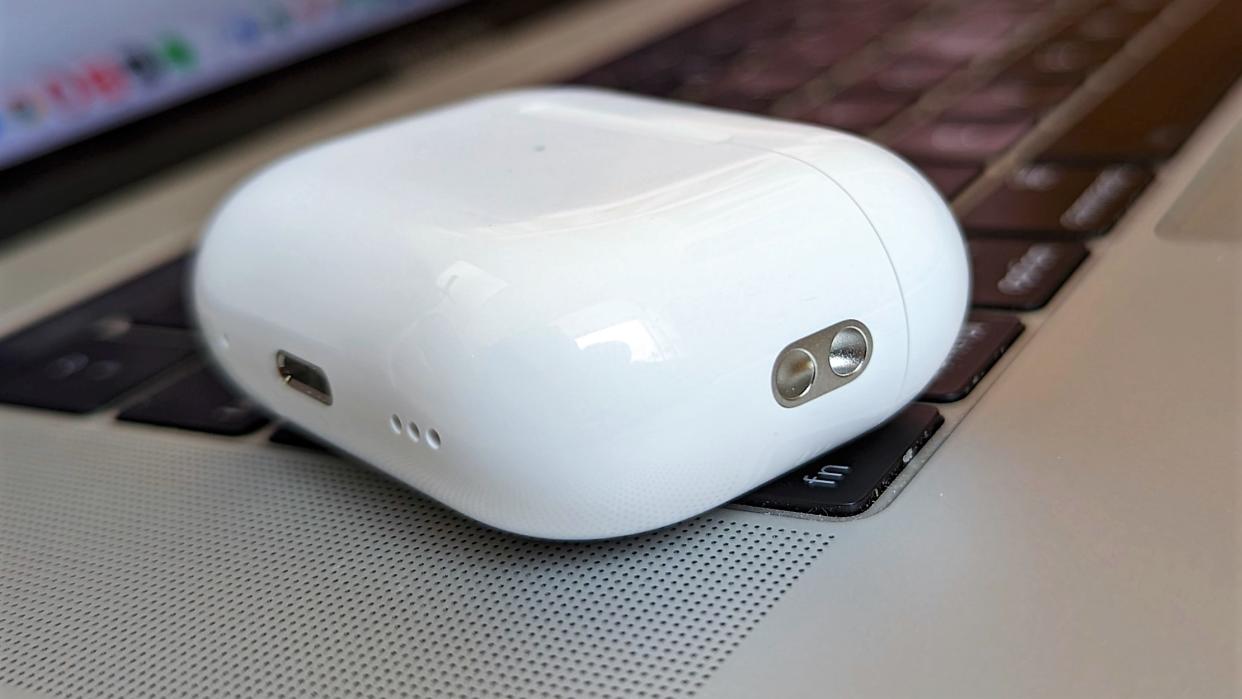New iPhone 15 could force AirPods charging change — here's why

Because my old AirPods were about to give up the ghost the other week, I decided to pick up a new pair of one of the best wireless earbuds. As I am a man of humble means, I do not require the active noise cancellation of the AirPods Pro, nor do I wish to pay extra for the additional battery life of the AirPods 3. So it's the AirPods 2 for yours truly.
There's a consequence for my penny-pinching ways, however. The 2nd-generation AirPods still ship with a USB-A-to-Lightning cable. And that's a connector that's simply not compatible with several Mac models — including the 13-inch MacBook Air that I own.
Indeed, if you have any recent MacBook Air, MacBook Pro or iMac, you're out of luck if you want to charge your AirPods 2 through your Mac. You will either need to have to pick up a dongle to plug into the Thunderbolt port of your machine, or you'll need a wall charger capable of accommodating that USB-A plug. In the case of the latter solution, you'll need to have one lying around or you'll have to buy it separately, as Apple has stopped including chargers with its products in the name of environmental responsibility. (Also, it cuts down on costs, too — there's more than one type of green Apple is concerned with.)
We could take Apple to task for offering a cable with its most affordable wireless earbuds that's not compatible with the ports on its most affordable laptops. Then again, Apple could counter that if cable compatibility is such an important consideration, why not just pay the extra $40 for the 3rd gen AirPods. You could make a case for either argument.
But this ignores the larger issue. The interconnectivity between Macs, iPhones and AirPods is becoming out of whack. And it only figures to get more so in the fall.
USB-C coming to iPhone 15... but what about AirPods?
That's when we're expecting the iPhone 15 models to arrive. And if there's one rumor about Apple's new phones that seems like a certainty, it's that they'll ditch Lightning connectivity in favor of USB-C.
European regulators have passed rules requiring phones to adopt a common charging technology by 2024. Rumors suggest that Apple plans to get the jump on that edict by launching new phones in the fall that all feature USB-C — that includes every model from the standard iPhone to the iPhone 15 Pro Max.
But what about the AirPods? It's going to be pretty weird if Apple's new phones all charge through USB-C while the wireless earbuds continue to rely on Lightning. If you think the different cables you need to keep on hand are hard to keep track of now, just wait until your phone and your accessories are using entirely different standards.
We find ourselves in between upgrades for Apple's different AirPods. The 2nd-gen AirPods Pro came out last fall, so Apple would be unlikely to have a new pair ready in time for the iPhone 15's release. A new generation of standard AirPods would be more likely — the 3rd gen AirPods came out in 2021 — though 2024 seems a more likely date, given the gap between the 2nd and 3rd generation releases.
Then again, if all that matters is how to charge the carrying case for the AirPods, that's easy enough to address in the interim between new versions of earbuds.
To that end, Bloomberg's Mark Gurman mentions in his latest column on Apple's assorted comings and goings that the same Lightning-to-USB-C transition coming to the iPhone is also coming to AirPods. Specifically, Gurman writes, "Apple is planning to make the same switch on the AirPods Pro’s charging case."
AirPods charging outlook
You'd conclude that would mean the charging cases that ship with AirPods would feature USB-C instead of Lightning after the iPhone 15's arrival. But I hope it also means that Apple will sell USB-C charging cases separately for those of us who'd like to upgrade the charging standard on our AirPods even if we plan to hold onto our current iPhones past the fall.
Apple will obviously have to make some sort of move. One of the great selling points of its products is how convenient it is to be in the Apple ecosystem. But dueling charging standards and incompatible ports is anything but convenient.
